Many new policies will take effect from June, including regulations on policies for senior experts working for central Party and State agencies.
Salary policy for senior experts
Decree No. 92/2025 of the Government regulating the regime and policies for senior experts, applicable to central Party and State agencies, takes effect from June 15.
Senior experts are officials, civil servants, public employees or retired people, people working outside the political system who meet the standards and conditions to be appointed by competent authorities.

Illustration: Thanh Hung
Senior experts who are civil servants and public employees holding leadership and management positions with a position allowance coefficient of 0.9 or lower, or who do not hold leadership and management positions, are entitled to enjoy the following regimes and policies: Salary is ranked at level 1, salary coefficient 8.80 of the senior expert salary table issued with Decree 204/2004; and are entitled to enjoy regimes and policies related to public service activities equivalent to the title of Assistant to senior leaders of the Party and State.
In case of holding a leadership or management position with a position allowance coefficient of 1.0-1.25, the employee will enjoy the following regimes and policies: Salary is ranked at level 2, salary coefficient 9.40 of the senior expert salary scale; enjoy regimes and policies related to public service activities equivalent to the position of Deputy Minister.
In case of holding a leadership or management position with a position allowance coefficient of 1.30 or higher, they are entitled to enjoy the following regimes and policies: Salary is ranked at level 3, salary coefficient 10.0 of the senior expert salary scale; and are entitled to enjoy regimes and policies related to public service activities equivalent to the title of Minister.
With the current basic salary of 2.34 million VND, according to the salary calculation formula, a senior expert level 3 will have a corresponding salary of 10.0 x 2.34 million VND = 23.4 million VND/month.
Cases where officers are considered for exemption from disciplinary responsibility
Decree No. 93/2025 of the Government amending and supplementing a number of articles of Decree No. 19/2020 on inspection and disciplinary action in the enforcement of laws on handling administrative violations takes effect on June 15.
Article 1 of Decree 93 has added a provision for the disciplinary measure of dismissal to be applied to officials who commit violations for the first time, causing particularly serious consequences.
In the following cases: Retaining a violation case with signs of crime to handle administrative violations; taking advantage of one's position and authority to harass, demand, or receive money or property from violators; condoning, covering up, or restricting the rights of violators when handling administrative violations; making records of administrative violations without proper authority, without proper administrative violations, or without proper subjects; sanctioning administrative violations, applying remedial measures, or applying administrative handling measures without proper authority, procedures, or without proper subjects.
Decree 93 supplements regulations on cases considered for exemption from disciplinary responsibility for cadres, civil servants and public employees, including: Cases specified in the Government's Decree on disciplinary action against cadres, civil servants and public employees; violations by cadres, civil servants and public employees arising from the fault of the administrative violator; The person issuing the decision in handling administrative violations self-checks, discovers errors and has corrected the errors according to regulations without causing consequences.
The Decree also amends and supplements regulations on disciplinary forms of reprimand, warning, salary reduction, demotion, dismissal, and forced resignation.
Stop collecting union fees from 2.6 million workers
Grassroots trade unions of administrative agencies and enterprises receiving 100% of their budget salaries from June 1 must stop collecting union dues and union funds and reorganize before June 15.
The suspension of collecting union dues and union funds from union members, grassroots unions of administrative agencies, public service units receiving 100% of state budget salaries, and armed forces not subject to the Vietnam General Confederation of Labor is implemented at the request of the Vietnam General Confederation of Labor to streamline the apparatus according to Resolution 60 of the Party Central Committee.

Illustration: Hoang Ha
Currently, there are about 2.6 million union members nationwide who do not have to pay fees since the beginning of June. The total amount of union fees and union funds of the group that stopped paying is about 3,000 billion VND per year.
Stop issuing paper health insurance cards
From June 1, in cases of requesting to reissue or exchange health insurance cards, social insurance officers are required to directly guide participants to install the Social Insurance Digital application (VssID), the electronic identification application (VNeID) and guide them to use the image of the health insurance card on the VssID, VNeID applications; the citizen identification card with a chip to go to the doctor for examination and treatment instead of the paper health insurance card.
Only issue new paper health insurance cards for cases where VssID, VNeID cannot be installed and there is no chip-embedded citizen identification card.
To use the VssID or VNeID application to replace the paper health insurance card, people can integrate their health insurance card into these applications by following these simple steps: integrate the health insurance card into VNeID.
Revenue of 1 billion VND/year must use electronic invoices
Decree 70/2025 of the Government provides details on the subjects of use and the content of electronic invoices generated from computers connected to transfer data to tax authorities.

Illustration: Mr. Nguyen
The Decree supplements the subjects using electronic invoices generated from cash registers connected to transfer data to tax authorities, including business households and individuals doing business according to regulations with annual revenue of 1 billion VND or more.
In addition, enterprises with activities of selling goods and providing services, including selling goods and providing services directly to consumers at shopping centers; supermarkets; retail (except for cars, motorbikes, scooters and other motor vehicles); food and beverage; restaurants; hotels; passenger transport services...
Vietnamnet.vn
Source: https://vietnamnet.vn/chinh-sach-moi-chuyen-gia-cao-cap-huong-luong-23-4-dong-trieu-nhu-bo-truong-2406714.html








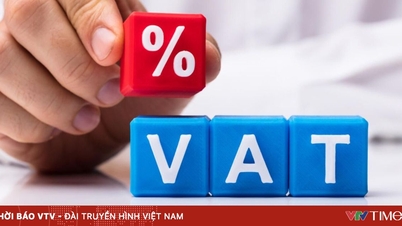




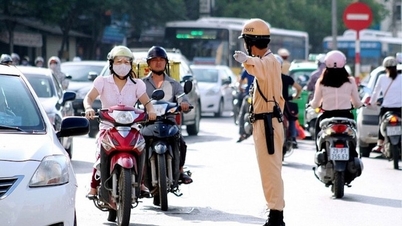





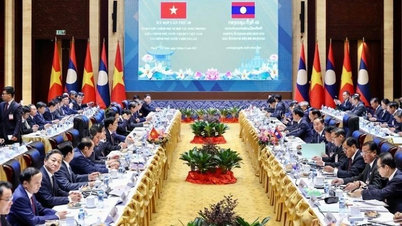






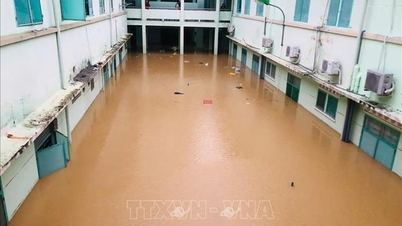

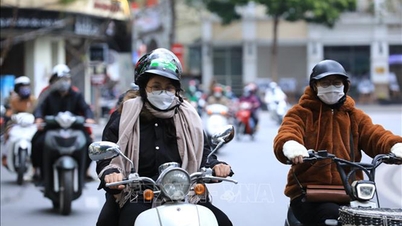










![[Photo] Parade to celebrate the 50th anniversary of Laos' National Day](/_next/image?url=https%3A%2F%2Fvphoto.vietnam.vn%2Fthumb%2F1200x675%2Fvietnam%2Fresource%2FIMAGE%2F2025%2F12%2F02%2F1764691918289_ndo_br_0-jpg.webp&w=3840&q=75)

























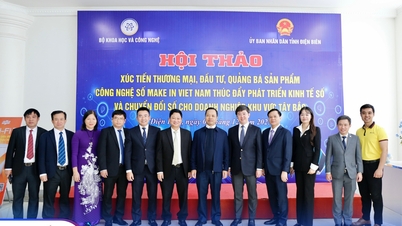











































Comment (0)